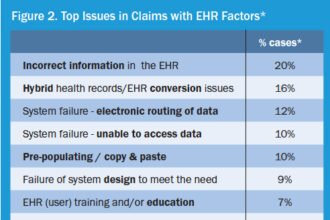While vaccines are meant to prevent disease and fight off potentially life-threatening bacteria, some still consider their effects dangerous and a debate still rages on in this country over their use. Why is this? Is there any truth to anti-vaccine claims? Often, then answers are fairly easy. Social media has led to a wave of “fake news” and fear mongering, while celebrities use their status to spread messages despite being misinformed. To understand the fear of vaccines, though, it’s necessary to start with one man: Andrew Wakefield.
Vaccines and Autism
In February of 1998, British doctor Andrew Wakefield published an article in The Lancet, a prestigious medical journal. In it, he linked vaccines, specifically the MMR (measles, mumps, and rubella) vaccine as a cause of autism. It was, in essence, the start of the anti-vaxxer movement, where parents would cite the study as a reason for not getting vaccinations for their children.
The problem was that it used fraudulent science. The co-authors of the study had it retracted. Wakefield lost his medical license over the article. The General Medical Council found he had shown “callous disregard for any distress or pain the children might suffer” in his collection methods and even collected blood samples at a birthday party.
Celebrities
Wakefield wasn’t the only person making a connection between vaccines and autism. In 2007, actress Jenny McCarthy told Oprah Winfrey during the latter’s talk show that her “mommy instinct” told her the MMR vaccine had caused her son Evan’s autism. She spread the same message on “Larry King Live” and “Good Morning America,” reaching some 20 million viewers.
Ironically, celebrities used to be a force for good in vaccines. Elvis Presley famously received a polio vaccine during “The Ed Sullivan Show,” to convince the public it was safe. It worked. By 1961, 90 percent of Americans under 20 received at least one polio shot. Since 1979, there has not been a single case of polio that originated in the U.S. The U.N. World Health Organization (WHO) notes that it is 99 percent eradicated around the world, saving 16 million people from paralysis. Only Afghanistan, Nigeria, and Pakistan have not stopped the transmission of polio.
Social Media
In the past, spreading misinformation required watching the right channel or word of mouth. Now, however, nearly everyone is connected to Facebook and will see shared articles on how a mother recently learned vaccines are bad and will no longer vaccinate. The problem is that many of these articles simply aren’t true or are using inaccurate information.
Social media vaccine myths have caught the attention of parents in England. The result? Social media is helping spread measles. Just this year, there have been 903 cases of measles in England, despite no cases originating in England since last year. Vaccination rates in the country are at 87 percent while the target is 95 percent for community immunity, often called herd immunity. In America, measles was declared eliminated in 2000 despite a 2015 outbreak at Disneyland in California.
Dr. Peter Hotez, author and director of the Texas Children’s Hospital Center for Vaccine Development at Baylor College of Medicine, told NBC News that the problem is the sheer volume of misinformation online.
“The anti-vaccine groups have made very strategic use of the internet and social media,” he added. “It’s estimated that there are more than 400 anti-vaccine websites now, and when you put ‘vaccine’ into a search engine, it’s almost inevitable you’re going to get an anti-vaccine website popping up.”
He added, “there’s an element of the anti-vaccine movement that is peddling alternative therapies and making money off of phony treatments.” It’s also become politicized, he argues: “ … (T)here’s an element that have tied themselves to different political groups. In Texas the major anti-vaccine lobby likes to use libertarian garbage terms like ‘medical freedom’ or ‘medical choice.’”
The outbreak isn’t just limited to England. Across Europe, NBC News reports there have been 41,000 cases and 40 deaths as of Oct. 20. At this rate, it is shaping up to not only be an epidemic, but possibly a pandemic if it continues spreading. Measles has been vaccine-preventable since 1963, yet unlike polio, still manages to spread like wildfire.
Vaccination Efforts Continue
Despite the fear mongering, the spread of misinformation over social media, and the continued use of celebrity status to derail herd immunity, vaccination efforts continue worldwide. In 2012, all 194 U.N. WHO member states endorsed the Global Vaccine Action Plan. It aimed to reach 90 percent DTP3 (diphtheria, tetanus, and pertussis) vaccination coverage in all countries by 2015 but had only reached 85 percent by 2017.
The WHO also vaccinates about 100 million children worldwide with a BCG vaccine, used to protect people against tuberculosis. The vaccine has shown to be at least 60 percent effective and lasts for several decades. It may also provide protection against meningitis and may be helpful for people with bladder cancer.
The short version, to answer the question posed in the title, is “yes, you should vaccinate your children.” The pros — vaccinating against harmful diseases, especially ones that can be vaccinated against — outweigh the cons of actually contracting the disease. Polio was a scourge in the 1950s, famously affecting President Franklin Roosevelt. Now, it is eradicated in the U.S. This could not have happened without vaccines. If someone is still trying to deter you from vaccinating your child, show them this unofficial Magic School Bus episode.









